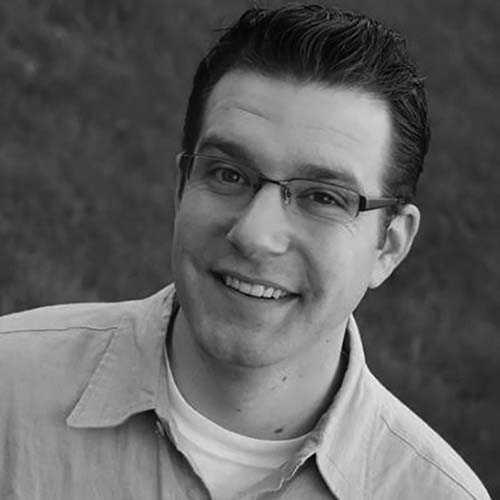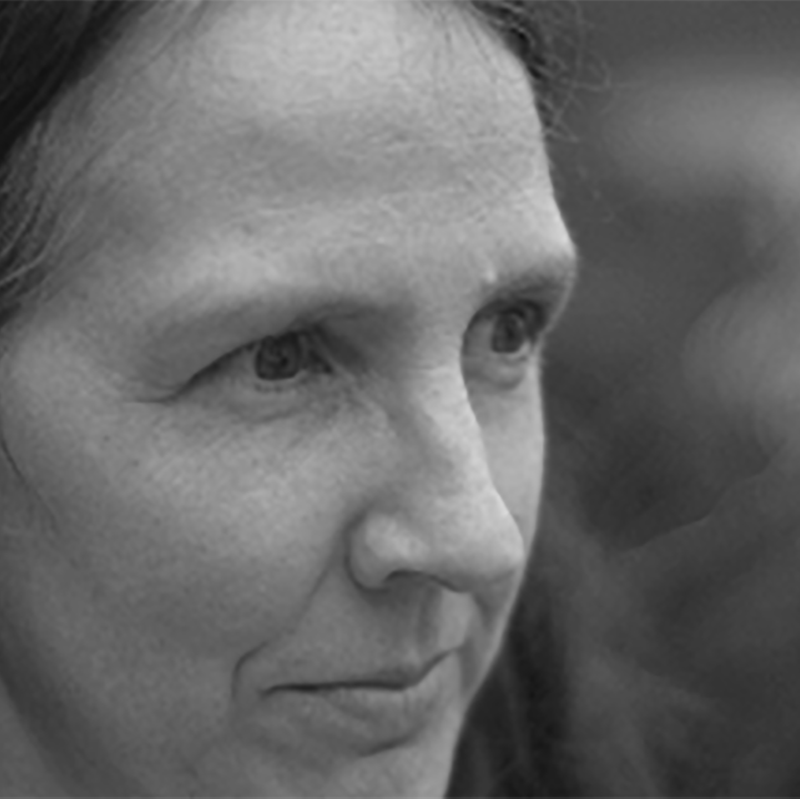It has been said that art represents humanity’s collective attempt to reconcile its own existence against an otherwise cold and uncaring universe. To strip away artifice, to obliterate pretense — to provide a context through which we may hope to define, at its core, exactly what it means to be a person. Which explains why art is so often heartbreakingly, unyieldingly, sad. Because, loathe as we may be to admit it (and despite all of our attempts to the contrary), ours is a conclusively lonely existence — one fraught with sorrow, doubt, and, ultimately, disillusionment. That’s the torment heard in Juliet’s deathbed soliloquy, the longing behind the chords of Leonard Cohen’s “Hallelujah,” the anguished panic pulsating through Edvard Munch’s “The Scream.” And that’s the reason why, every Spring, I make sure to stock up on extra-soft, triple-ply, Kleenex-brand tissues in anticipation of the season’s most gut-wrenchingly devastating artistic offering: the premier episode of the ABC network’s hit reality television series “The Bachelorette.”
For those who may be unfamiliar, a brief synopsis: “The Bachelorette” is a televised dating competition wherein twenty-five presumably eligible men vie for the affections of one woman — the aforementioned “Bachelorette” — an America’s-Sweetheart type generally plucked out of the pool of losing contestants from the latest season of “The Bachelorette’s” identically structured, appropriately titled, gender-reversed sister program, “The Bachelor.” Over the course of ten weeks these men will compete in a series of ingeniously constructed trials-by-fire (“dates” in the parlance of the show) — all designed to prove one’s merit, one’s worth, one’s essential spouse-ability, so that ultimately one contestant may emerge victorious to claim the hand of his Bachelorette-No-Longer, a presumably consenting, presumably love-struck, presumably gushing, Trisha, Kaitlyn, or, most recently, Jojo.
However, it isn’t this rose-tinted notion of storybook romance that reliably brings me to tears every May. It isn’t the helicopter rides, the horses on the beach, or even the valiant attempt at poetry (wherein the “Artistic Contestant” will inevitably rhyme the phrase “My Jojo” with “My Mojo” in a metered application for entry into the coveted Fantasy Suite.) It’s the fact that, of the initial twenty-five contestants selected to participate in the show, ten will be immediately turned away at the door.
For these men there will be no helicopter rides, no beachfront equestrianism, no opportunity to show off a recently acquired mastery of iambic pentameter. Not only will they never enter the Fantasy Suite — they’ll never even enter the second floor of the Bachelorette Mansion. They’ll arrive in a limousine, have a twenty second conversation with their season’s Bachelorette-De-Jour, be flatly and publically denied one of the fifteen roses meant to signify Jojo’s ever cursory interest in getting to know them any further, and then be sent directly back to whatever part of the country it is they flew in from. And then they will be instantly forgotten.
All while I watch. All while I cry.
Because these men very clearly did not expect this to happen. (In fact, they very clearly expected the opposite to happen.) Why else would they have flown into California — abandoning their careers, abandoning their lives — if not because they were fully convinced that what they brought to the table — their accomplishments, their personalities, their comically inflated pectoral muscles — would be sufficient to not only satisfy the romantic ideals of one starry-eyed young enchantress, but also those of an adoring American public? These men flew into California a group of self-perceived Prince Charmings. They flew out of California a broken cluster of Le Fous.
(For those who may be unfamiliar, “Le Fou” is a bumbling, bizarrely-proportioned secondary character in the animated version of Disney’s “Beauty and the Beast,” one whose primary function appears to be absorbing the vitriol spewn at him by his domineering master Gaston, in what hints at an only-slightly-sanitized version of sadomasochistic role-play.)
I cry for these men not out of embarrassment, but out of a genuine sense of empathy. Because these men bear the collective burden of embodying what may be the single harshest truth underlying our shared human experience: that the image of ourselves that we think we’re projecting onto the world is often so comically divorced from the reality as to merit its own television show on the ABC network.
We all think that we come across better than we do — we have to. It’s a necessary byproduct of our own self-preservation. If we were ever forced to honestly acknowledge the way that the world truly thinks of us as individuals — how visible our deficiencies, our flaws, our cartoonishly bizarre proportions truly are, we would never be able to muster the simple strength required to get out of bed in the mornings. That’s the reason why the phrase “The Kind Of Place Where People Don’t Even Lock Their Doors” holds such great currency in today’s real-estate market. If we never need to lock our doors — so follows the logic — then we never need to re-enter the party we’ve just exited in order to retrieve a forgotten set of keys, thus eliminating the all-too-real risk of inadvertently stumbling into the cacophony of terrible things that everyone has been saying about us starting the second we left their apartment.
Look — it isn’t as if we’re wholly unaware of the image that we present — we generally have the basic outline down. But the devil, as they say, is in the details.
For example, I am generally aware of the fact of my whiteness. Which is to say that it doesn’t tend to take me by surprise as I stare into my bathroom mirror in the mornings — fraught with a crippling sense of internal anxiety as to the question of whether or not an open second shirt button projects an image of bravado that I can’t possibly be expected to live up to — that the face staring back at me is textbook definition Caucasian. I own a seltzer maker, I have a “tea connection” in Connecticut, and I’ve started more than one conversation with the phrase “You know, if you really stop and think about it, Matchbox Twenty is actually a pretty underrated band…” I’m white. There isn’t a lot of ambiguity surrounding that fact.
And yet, despite the overwhelming empirical evidence to the contrary — evidence suggesting that the image I actually present is that of a “bookishly approachable stranger you can rely on for accurate directions to Banana Republic” — I simultaneously maintain the completely un-founded illusion that I also project a palpable sense of danger.
For example, I recently started wearing a bandana on my forehead in an attempt at a look that can only reasonably be described as “newly-unemployed-adjunct-professor.” Last weekend, on a jaunty stroll to my favorite neighborhood cheese shop, Vampire Weekend in my ears, America’s first Haagen-Dazs to my right — the thought honestly occurred to me that someone might see me wearing my blue bandana and worry that the tree-lined streets of Brooklyn Heights had been infiltrated by a street gang. (More specifically, I thought, “I’d better take off this bandana before someone sees me and thinks that I’m in The Crips.”) Never mind the fact that my very next thought was “I hope this place sells a more spreadable Brie than the unpasteurized Somerset I’ve been buying recently…” I was legitimately worried that someone was going to see me in a headband and draw the immediate conclusion that I was a member of the most feared and repudiated prison gang in the history of American criminology.
(Look — I’ve been in gangs over the course of my lifetime. But they’ve been gangs of people who look like I do. Also known as “improv groups.”)
Which brings me to my own personal moment of devastating self-realization — the moment when the entire façade-of-delusion that I’d spent years carefully crafting for myself came cascading down in a crushing avalanche of reality. The moment when, confronted with the complete set of options available to her, Jojo looked me in the eyes — squarely, deliberately — and mumbled, simply, “Nope.”
I was in the beautiful city of Charleston, South Carolina, touring with a show I’d written and absolutely confident in every aspect of what I was bringing to that particular Southern table — my accomplishments, my personality, the New York City residency that I assumed would have everyone I met throwing themselves at my feet begging to be regaled with tales of “life in the big city.” The night before the show the cast and I decided to hit the town — experience some local booze-culture, meet some native Charlestonians, and hopefully muster up a small sense of hype surrounding our ensuing comedy performance. Several hours (and as many drinks) later, we found ourselves in the company of Brittany and Elena — two beautiful young HR Recruiters from Raleigh, North Carolina, fellow travelers in town for a consequence-free Girl’s Weekend. (Which was, it should be noted, exactly the experience that I assumed I was providing for them.)
From the moment I inserted myself into their conversation (a conversation which was, I could only assume, severely wanting for some fascinating insight into “the time I saw Joaquin Phoenix on the subway because, you know, I live in New York City, and that’s the kind of thing that happens all the time in New York City, where I live, in New York City…”) I could tell that Brittany and Elena were little short of enchanted. I was witty, I was charming — the banter between the three of us bouncing seamlessly between the kind of flirtatious repartee and respectful intellectual challenge that would have Aaron Sorkin openly weeping with envy.
(In fact, I was so convinced of the effect I was having that, while walking over to the jukebox in order to queue up my go-to Matchbox Twenty playlist, I actually thought about taking off my wedding ring and hiding it in my pocket. Not because of any inclination towards infidelity, but because I was sincerely concerned that Elena might be thrown into a fit of actual hysterics were she to realize that I had a spouse back home in Brooklyn, which is part of New York City, where I live, in New York City.)
So engaging was the conversation, so ripe with potential, that, fifteen minutes in, I realized that I’d never even found a window in which to properly introduce myself. Of course, as a long-time resident in the kill-or-be-killed word of long-form improv comedy, I decided to take this glaring omission as a moment of unique opportunity. “Here,” I said, smiling smugly, “I’ve got a great idea. Instead of me telling you my name, why don’t you try and guess what it is based on everything that’s happened over the last fifteen minutes.” I leaned back slowly against the bar, a cocky Rumpelstitlsken waiting to be anointed with the moniker of “Pablo,” “Jean-Luc,” or perhaps even “Ryan Gosling” — some name evoking mystery and adventure and the type of forbidden dalliance heretofore confined to the pages of the ancient Kama Sutra.
The name that I was actually given (and given, it should be noted, with a deliberateness and speed in defiance of everything I thought I knew about the physics of sound)…was Gary.
Fucking Gary.
I ask you: has there ever been a name that connotes an image of a more sexless, amorphous, broken sack of human desperation than Gary? Gary isn’t the name of a person you flirt with at the bar; Gary is the name of a guy who wears sweatpants to The Olive Garden. Gary isn’t the guy who fulfills your romantic fantasies; Gary is the guy who still gets hernias as an adult. You never ask a guy named Gary “Hey, how’s it going?” because you just know that his answer is going to begin with the phrase “Well, it’s been a rough couple of months…” and end with the phrase “…and that’s how I got my latest spider bite.” I don’t care what small town you live in; if there’s ever a headline in your local newspaper reading “Area Man Falls Into Yet Another Sinkhole,” the name of that Area Man is Gary.
If Gary was an instrument he’d be a used tuba. If Gary was a book he’d be “Everybody Poops.” If Gary was a band he’d be — I can now say, with the benefit of hindsight — Matchbox Twenty. Here are a series of phrases that have never been uttered in the presence of anyone named Gary: “Well Gary, the results are in, and it isn’t terrible.” “Congratulations on not getting caught up in that Ponzi scheme.” “Please Gary, just a minute. My body can’t handle another orgasm.”
And lastly, perhaps most devastatingly:
“Gary, will you accept this rose?”
There would be no rose in the offering that night in Charleston, South Carolina. No sun-drenched evening horse rides, no walks along the beach. I tried to comfort myself with the thought that perhaps Brittany and Elena were simply compensating for their intimidation at being in the same room as someone who might be in The Crips, but even I couldn’t maintain that illusion for more than the minute it took for the final notes of “Smooth” to fade away from the bar’s sound system. (And though I can’t say for certain, I distinctly remember that the song that came on next was Leonard Cohen’s “Hallelujah.”)
And yet, though I stood in that moment alone, I can honestly say that I wasn’t lonely. Because somewhere, at that very moment, there was a man boarding a plane for California, on a one-way ticket to the Bachelorette Mansion. And to that man I say this: “It’s nice to meet you, Gary. My name is Gary too. I live in New York City, although I suspect you already knew that.”



